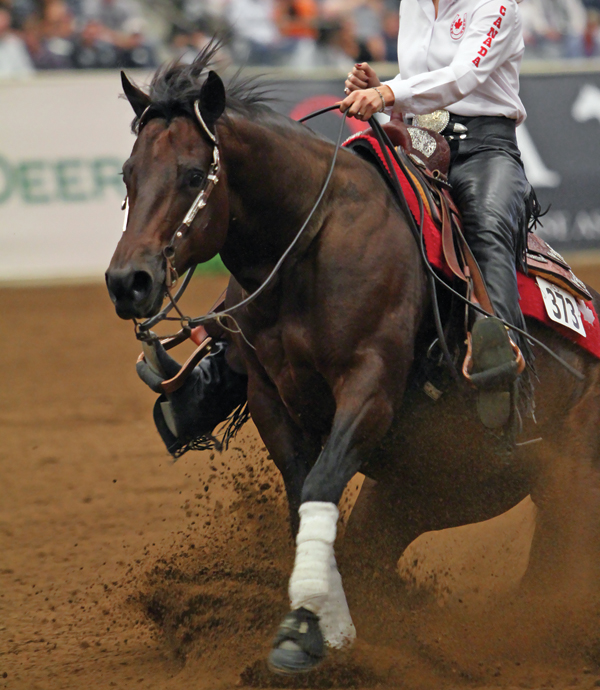Studies indicate that between 60 to 90 percent of horses have gastric ulcers. Stress from showing or intense riding can exacerbate dormant problems; here’s how you can help your horse avoid them.

Provide turnout. Confinement is directly correlated with ulcer risk, so the more turnout, the better.
Feed right. This means plenty of roughage, which ups the saliva production that helps neutralize stomach acid. Provide meals at frequent intervals—avoid “fasting” your horse.
Limit stress. Be mindful that constant hauling and the demands of competition can increase your horse’s ulcer risk—so if you compete, do everything you can to minimize these stressors.
Use drugs properly. Follow your veterinarian’s orders scrupulously with respect to administering any anti-inflammatory drugs (bute, Banamine) your horse may need.
Diagnose first. Symptoms of ulcers range from colicky behavior and weight loss to a sore back, cinchiness, or simply poor performance. If you suspect your horse may have ulcers, have your vet perform an endoscopic exam (with a tube inserted into your horse’s stomach). “Omeprazole paste is the most effective medication for treating ulcers,” says Barb Crabbe, DVM, H&R’s consulting veterinarian, “but it’s expensive. So it makes sense to know for sure before you treat.”






